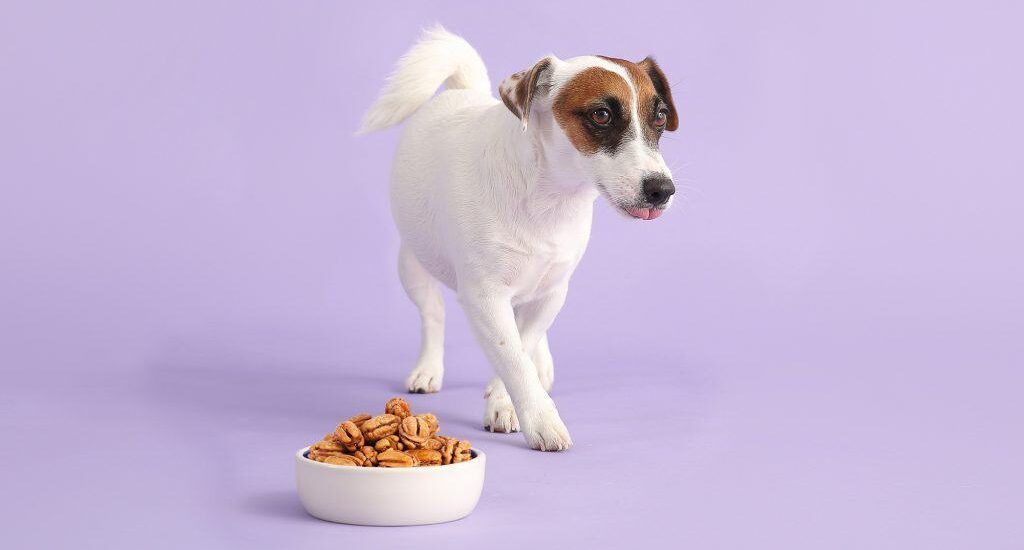Is it safe for dogs to eat pecans?
can dogs eat pecans? Pecans are native to North America and Mexico. They can be found in muffins, cakes, muffins, and many other delicious treats. Pecans are a great snack because they are rich in healthy, unsaturated fats as well as packed with at least 19 vitamins.
It’s unlikely that your dog will accidentally grab a pecan from the floor. Pecans are not recommended for dogs as treats. They contain a toxin called juglone which can cause serious health problems.
Like walnuts, pecans are also susceptible to mold, which contains tremorgenic mycotoxins that can lead to tremors, seizures, and even damage a dog’s neurological system. These nuts are made from the aspergillus mold, which is a type tree nut and can contain aflatoxin.
If your dog ingests a pecan that has become moldy (which can happen easily and quickly on the shells), they can experience symptoms including seizures and other neurological issues. Pecans are safe for anyone who isn’t allergic to nuts, but dogs’ GI systems can’t withstand the potential toxins. your dog Love lettuce?
What nuts are safe to feed my dog?
Peanuts
Peanuts are the first thing that dog parents think of when they consider a treat for their dogs. Peanut butter and peanut butter are two of the most popular treats for dogs. Mine sure do!
Peanuts are legumes and not nuts. They are safe for dogs. Peanuts, which are legumes, can be dangerous for your dog’s digestive system. They also contain high-fat and calories, as with all nuts. A few peanuts, or even a handful of them, will not cause any problems for your dog. However, large amounts of these delicious treats can.
As with all nuts, peanuts can cause blockage or choking. Dogs eat a lot of nuts, and they can get stuck in their stomachs, windpipes, or intestinal linings. This is especially true of small breeds. Sharing the delicious snacks with your dog may be easier if you consider smaller pieces of nuts than the whole thing.
Peanut butter
Peanut butter is an easy way for dog owners to give their dogs medication. You can use small amounts, but not too much. You could cause an upset stomach, or worse, pancreatitis in your dog companion if you use too much.
Pay attention to what ingredients are in peanut butter and nut butter. Seasonings of any kind, especially artificial sweeteners and sugar substitutes, can cause stomach problems in dogs.
Peanut butter brands may contain Xylitol. This artificial sweetener can cause severe allergic reactions in dogs and is very toxic to them. It can quickly make your dog sick. Sometimes it takes as little as 10 to 60 minutes. White Husky
Xylitol toxicity can lead to dangerously low blood sugar, seizures, weakness, vomiting, nausea, and even stagging. Avoid giving your dog any products containing Xylitol.
Cashews
If roasted, cashews can be safe for dogs. They are usually sold roasted because they come from the same botanical family like sumac or poison ivy. Do not give your dog raw cashews or their shells if you find them. Ingestion can cause toxic reactions.
Cashews are high in calories and fat. Cashews are high in fat and calories. You should only eat them sparingly. Too many can cause pancreatitis and stomach ache. High levels of potassium can cause problems in the urinary tract for dogs that are susceptible.
Large cashew nuts can pose a danger to your health, even for larger breeds. This is particularly true for small breeds. You also have to be aware of the possibility of intestinal obstruction.
Almonds
Dogs should not eat almonds. Dogs’ digestive systems are not equipped to handle them. They aren’t toxic, but they can cause problems in the dog’s gastrointestinal system.
If eaten quickly, they can also pose a danger of choking or obstruction. Because of its large size, this nut can become lodged in your esophagus or windpipe. EveryThing about Mango For dogs
Salts, seasonings and chocolate coatings are common ingredients in almonds we eat. These ingredients can lead to high blood sugar levels and salt toxicity. Giving almonds to your dog is not a safe option.
You wouldn’t feed your dog pecans.
When pecans are eaten by humans, they have a high nutritional value.
Are pecans also good for dogs?
High levels of antioxidants and omega-6 fatty acid are found in pecan seeds.
These nutrients are thought to be good for the heart and reduce cholesterol. They also help prevent certain diseases, including cancer.
Pecans are high in fiber, protein, and low in saturated fat. Pecans also contain vitamins and minerals, such as thiamine and phosphorus, manganese and magnesium.
These are all reasons that pecans make a healthy addition to anyone’s diet. Are coconut SAFE?
Hence, why are pecans so bad to dogs?
Let’s see what happens.
Do dogs have an allergy to pecans
Dogs can eat pecans?
Pecans can also cause severe gastric upset in dogs.









